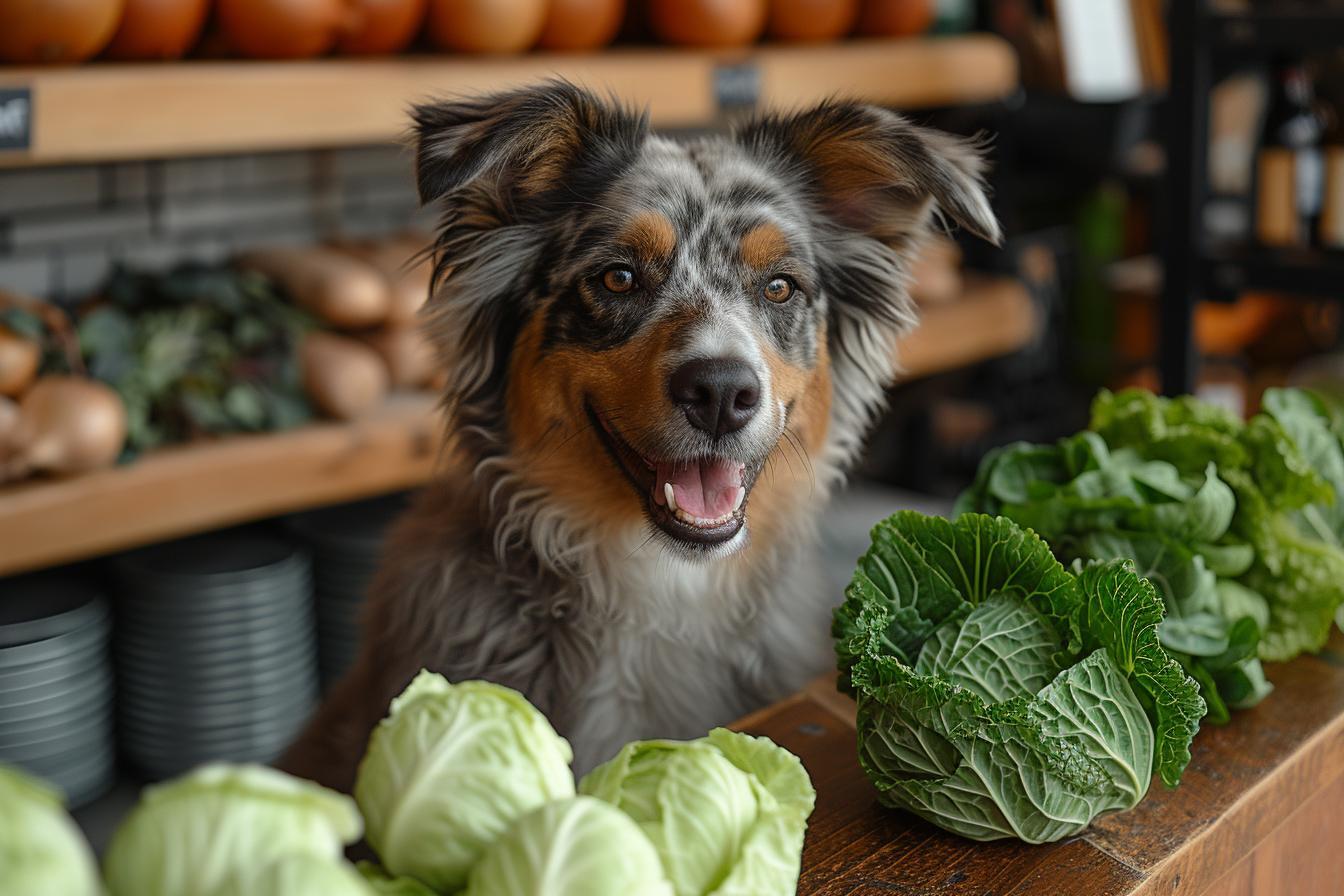Sharing a meal with our canine friends is a moment of complicity appreciated by many owners. However, when it comes to incorporating foods from our own plate, like cabbage, into our dogs’ diet, it is important to question the safety and potential benefits for their health. This article addresses the crucial question that many owners have in mind: can dogs eat cabbage safely? Together, we will explore the nutritional virtues that cabbage can offer to dogs, why it is essential to cook it before sharing it with them, and the potential dangers of excessive consumption. To complete our culinary journey, we will emphasize the importance of consulting a veterinarian to best adapt your four-legged companion’s diet.
Cabbage: a nutritional treasure for humans
Before discussing the effects of cabbage on our faithful companions, it is essential to understand why we, humans, value this leafy vegetable in our diet. Cabbage is full of nutritional benefits: it is rich in fiber, vitamins (such as vitamin C and K), and it is an excellent source of minerals such as potassium and magnesium. Furthermore, it is a low-calorie food, making it an ideal ally for a balanced diet. It is then worth wondering if dogs can derive the same benefits from this superfood.
Confirmation: cabbage is a friend to dogs
The answer is yes: cabbage can be safely incorporated into dogs’ diet. It is important to note that, just like for humans, cabbage can offer dogs a plethora of beneficial nutrients. However, to ensure that our companions make the most of these advantages, some precautions need to be taken.
Abundance of vitamins and minerals for canines
Indeed, cabbage is not only healthy for humans. Our canine friends can also enjoy its nutritional properties. The supply of vitamins and minerals in cabbage contributes to maintaining a healthy skin, strengthens the immune system, and supports the proper functioning of the digestive system. Moreover, the antioxidants present in cabbage can help reduce inflammation and fight against aging. However, the way we offer it to our dogs is of vital importance.
The importance of cooking cabbage
It is strongly recommended to cook cabbage before giving it to your dog, as raw cabbage can be more difficult for them to digest. Cooking transforms cabbage into a softer dish for the dog’s stomach, eliminating substances such as thiocyanate that can interfere with thyroid function when consumed in large quantities. Thus, a small amount of cooked cabbage can be a healthy and tasty complement for your dog.
Risks of excessive cabbage consumption in canines
But beware of moderation! Excessive cabbage consumption can lead to digestive disorders such as excessive gas and bloating in dogs. Additionally, as mentioned earlier, cabbage contains substances that can impair thyroid function. Therefore, it is essential to offer cabbage to your dog only in small portions and occasionally.
Advice from a veterinarian above all
Lastly, any introduction of human food into the diet of our pets, including cabbage, should be done under the supervision of a veterinarian. It is crucial to understand that each dog is unique, and what is beneficial for one may not be suitable for another. A veterinarian will provide advice on the appropriate amount of cabbage to incorporate into a dog’s diet, taking into account their specific nutritional needs, size, age, and health condition.
In conclusion, although cabbage can be a nutritious addition to our dogs’ diet, it is imperative to respect the principles of moderation and proper preparation. Always remember to consult your veterinarian before introducing any new food into your dog’s diet to ensure their well-being and long-term health.







